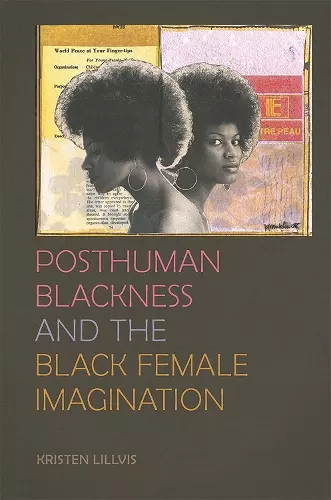Posthuman Blackness and the Black Female Imagination
Format:Hardback
Publisher:University of Georgia Press
Published:1st Sep '17
Should be back in stock very soon

How posthuman theory can inform black visual art, film, music, and literature
Examines the future-oriented visions of black subjectivity in works by contemporary black women writers, filmmakers, and musicians, including Toni Morrison, Octavia Butler, Julie Dash, and Janelle Monáe. In this innovative study, Lillvis supplements historically situated conceptions of blackness with imaginative projections of black futures.
Posthuman Blackness and the Black Female Imagination examines the future-oriented visions of black subjectivity in works by contemporary black women writers, filmmakers, and musicians, including Toni Morrison, Octavia Butler, Julie Dash, and Janelle Monáe. In this innovative study, Kristen Lillvis supplements historically situated conceptions of blackness with imaginative projections of black futures. This theoretical approach allows her to acknowledge the importance of history without positing a purely historical origin for black identities.
The authors considered in this book set their stories in the past yet use their characters, particularly women characters, to show how the potential inherent in the future can inspire black authority and resistance. Lillvis introduces the term “posthuman blackness” to describe the empowered subjectivities black women and men develop through their simultaneous existence within past, present, and future temporalities.
This project draws on posthuman theory—an area of study that examines the disrupted unities between biology and technology, the self and the outer world, and, most important for this project, history and potentiality—in its readings of a variety of imaginative works, including works of historical fiction such as Gayl Jones’s Corregidora and Morrison’s Beloved. Reading neo–slave narratives through posthuman theory reveals black identity and culture as temporally flexible, based in the potential of what is to come and the history of what has occurred.
Lillvis’s text is a welcome addition to the creative, critical, and theoretical work surrounding the current moment in black literatures…Lillvis’s work shows a fresh approach that bends the discourse in creative new directions.
* Tulsa Studies in Women's Literature *Lillvis addresses a traditional problem in the turn to discussions of the posthuman and nonhuman, namely, what does it mean to rethink black people’s humanity when they have traditionally been categorized as nonhuman?. . . . By applying a hermeneutic in which the posthuman is important to texts in which the idea of black humanity has traditionally been read as central, Lillvis exhibits the scholarly shift that has occurred in which literary and genre fiction can be considered together.
* American Literary HistoISBN: 9780820351223
Dimensions: unknown
Weight: unknown
148 pages